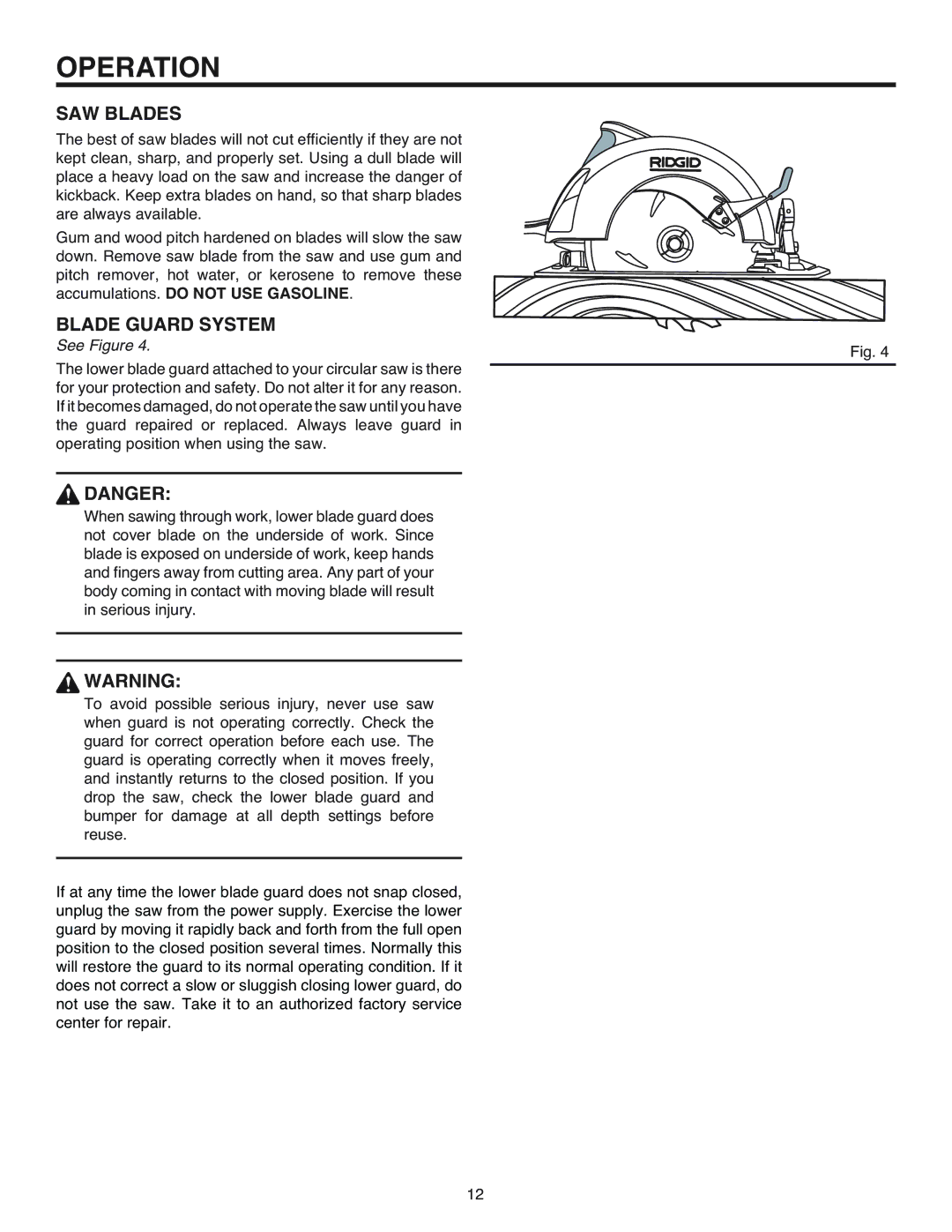
OPERATION
SAW BLADES
The best of saw blades will not cut efficiently if they are not kept clean, sharp, and properly set. Using a dull blade will place a heavy load on the saw and increase the danger of kickback. Keep extra blades on hand, so that sharp blades are always available.
Gum and wood pitch hardened on blades will slow the saw down. Remove saw blade from the saw and use gum and pitch remover, hot water, or kerosene to remove these accumulations. DO NOT USE GASOLINE.
BLADE GUARD SYSTEM
See Figure 4. | Fig. 4 |
|
The lower blade guard attached to your circular saw is there for your protection and safety. Do not alter it for any reason. If it becomes damaged, do not operate the saw until you have the guard repaired or replaced. Always leave guard in operating position when using the saw.
![]() DANGER:
DANGER:
When sawing through work, lower blade guard does not cover blade on the underside of work. Since blade is exposed on underside of work, keep hands and fingers away from cutting area. Any part of your body coming in contact with moving blade will result in serious injury.
![]() WARNING:
WARNING:
To avoid possible serious injury, never use saw when guard is not operating correctly. Check the guard for correct operation before each use. The guard is operating correctly when it moves freely, and instantly returns to the closed position. If you drop the saw, check the lower blade guard and bumper for damage at all depth settings before reuse.
If at any time the lower blade guard does not snap closed, unplug the saw from the power supply. Exercise the lower guard by moving it rapidly back and forth from the full open position to the closed position several times. Normally this will restore the guard to its normal operating condition. If it does not correct a slow or sluggish closing lower guard, do not use the saw. Take it to an authorized factory service center for repair.
12
